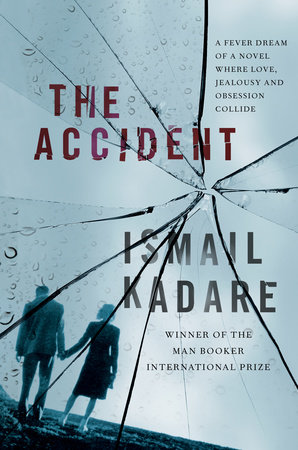The problem with The Accident is that it feels too surreal for me to invest any sort of emotional or intellectual connection with the story or characters. Ismail Kadare seems to be commenting upon a political situation related to Albania and Serbia and a host of other countries, a situation I am too unaware of for this to resonate with me. But at the same time, the book also seems to be about a rocky and destructive human relationship. But it is also about the myriads of interpretations people might give for an event that they begin to delve into the ridiculous. This is a story that probably could have been told as a short story, for the conclusion is pretty apparent by the opening chapters, and what happens in between is dragged on and on, repeated tirelessly until the final pages.
The novel begins intriguingly enough, with a taxi that gets into an accident, flinging out a couple in the back seat but leaving the driver unharmed. What seems to be a simple accident - distracted driver, doors somehow flung open, two dead - becomes mired in investigation as people wonder whether the man in fact murdered the woman, and pretty soon their every correspondence is under scrutiny as researchers try to figure out what really happened. Occam's Razor tells us that the simplest explanation is the best explanation, but it's not always the most satisfying. I can see hints of what Kadare is trying to do here. News reports endlessly and tirelessly interpret and cover events in a myriad of ways from all kinds of different perspectives. At first I thought that Kadare's purpose was satire. By the end, I'm not entirely sure his purpose.
Kadare seems to open this work to its own sort of endless interpretation. The two main characters - Besfort and Rovena - could each represent a nation or region, and one could read into their relationship the relationship between these two areas. But if this novel serves as an allegory, that strips away the emotional resonance. On the other hand, it is difficult to read this as a novel providing insight into human relations because so often the dialogue and happenings do not feel real. People say bizarre things to each other and respond in bizarre ways. Kadare clearly has something in mind as he makes the choices he does in this novel, but I think for most readers these choices will be alienating and make this a less compelling read, as they did for me.

No comments:
Post a Comment